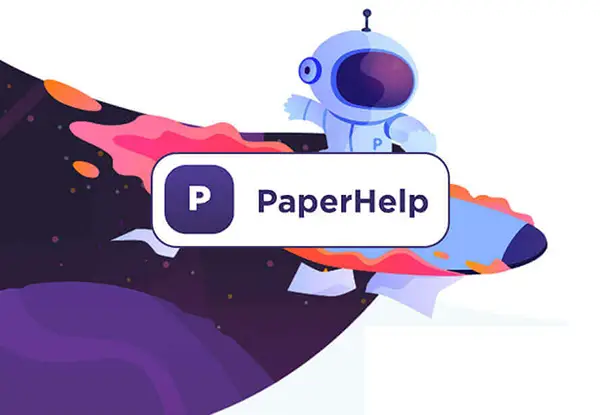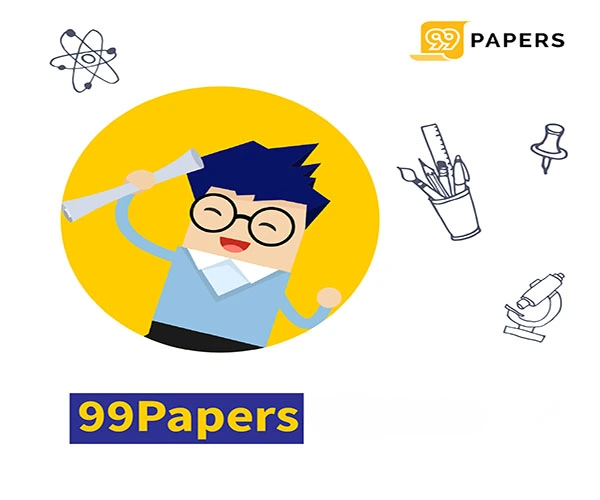One of the most crucial elements of writing a compelling essay is the hook. A hook is the opening sentence or two that captures the reader's attention and entices them to continue reading. There are various types of hooks suitable for different types of essays in college, each designed to engage the reader in a unique way. Whether you’re writing a persuasive piece or a narrative story, the hook you choose can significantly influence the effectiveness of your essay.
Understanding the different types of essays is essential for crafting an effective hook. From analytical essays to narrative forms, each type serves a specific purpose and has its own conventions. Websites like myadmissionsessays and studdit offer valuable insights into these various formats, helping students recognize how to tailor their hooks accordingly. For instance, an essay is a type of weegy, which means it can be adapted to diverse subjects, ranging from personal reflections to in-depth research analyses.
We will explore the different types of hooks that are effective across various types of essays and discuss key characteristics of the most common essay formats encountered in academic settings. By mastering both hooks and essay types, students can enhance their writing, making their arguments more persuasive and their stories more engaging.
Understanding Different Types of Hooks for Essays
When writing an essay, capturing the reader's attention from the very beginning is crucial. Hooks serve as the initial bait that draws readers in and piques their interest. An effective hook can significantly influence how the audience perceives the essay, making it essential for students, particularly in college, to understand the different types of hooks available. These hooks can vary widely depending on the types of essays being written, whether they are persuasive, narrative, or descriptive.
At platforms like extraessay, students can find helpful resources on crafting engaging introductions. Similarly, services like myadmissionsessays provide insights into the various types of essays in college and how to start them effectively. Let's explore some common types of hooks that can be employed in essays.
Types of Hooks
- Question Hook: Starting with a thought-provoking question engages the reader's curiosity. For instance, "What would you do if you could change one thing in the world?"
- Quote Hook: Beginning with a relevant quote can lend authority to your introduction. Citing a well-known figure can set the tone for your argument.
- Statistic Hook: Introducing surprising statistics can shock the reader and invite them to read on to understand the context.
- Anecdotal Hook: A brief personal story or anecdote can create a connection with the reader, making complex topics more relatable.
- Bold Statement Hook: A daring assertion or a controversial opinion can provoke interest and debate, compelling readers to continue.
Understanding the different types of hooks for essays is essential for students striving to articulate their ideas clearly and effectively. By leveraging these hooks appropriately, as shown in platforms like studdit, writers can enhance their essays and ensure they resonate with their audience from the very first line.
What is an Essay Hook and Why is it Important?
An essay hook is a compelling opening statement or question that grabs the reader's attention and makes them want to read further. It serves as the critical first impression of your essay, setting the tone and context for what follows. A well-crafted hook can make a significant difference in engaging the audience, which is especially crucial in academic writing, where competition for readers' interest can be intense.
There are various types of essays that students encounter during their academic journey, particularly in college. Understanding the importance of an effective essay hook is essential for navigating these different types of essays. Platforms like myadmissionsessays and extraessay offer valuable resources for students looking to enhance their writing skills and make their essays stand out.
Types of Hooks
There are several types of essay hooks that can be utilized depending on the type of essay being written. Here are some common types:
- Question Hook: Beginning with a thought-provoking question encourages readers to ponder the topic.
- Quote Hook: Using a relevant quote can establish credibility or introduce a central theme.
- Statistic Hook: Presenting a surprising statistic can capture attention and highlight the importance of the subject.
- Anecdotal Hook: Sharing a personal story or anecdote can create a connection with the reader.
Each type of hook serves a different purpose and can be effective in various contexts. For instance, if you are writing a persuasive essay, a statistic or a question hook may work better to engage the reader and prompt them to think critically about the argument.
Understanding the different types of essays in college and their specific requirements will help in selecting the most suitable hook. Whether you're writing a descriptive, narrative, or argumentative essay, a strong hook is vital to ensure your arguments and ideas resonate with your audience. Therefore, when crafting your essay, give careful consideration to how you begin; doing so can set the stage for a successful piece of writing.
Exploring Different Types of Hooks: Questions, Quotes, and Anecdotes
When it comes to writing essays, especially in the context of types of essays in college, the introduction plays a crucial role in capturing the reader's attention. One of the most effective ways to enhance an introduction is by using hooks–engaging statements or questions that pique interest. In this discussion, we will explore various types of hooks such as thought-provoking questions, compelling quotes, and memorable anecdotes, all of which serve to make your writing more intriguing.
In platforms like extraessay and myadmissionsessays, understanding the various types of essays can enhance your writing skills. Each type of essay can benefit from a well-crafted hook tailored to its specific audience and purpose. Here, we will delve into the most common hook types and how they can be effectively utilized in different contexts.
Types of Hooks
- Questions: Starting with a question can immediately engage the reader. For instance, asking "What if our entire understanding of history was wrong?" invites curiosity and encourages the reader to think critically about the topic.
- Quotes: A powerful quote from a notable figure or relevant source can lend authority to your essay. For example, beginning with a quote like "The only thing we have to fear is fear itself" can set a tone of resilience and intrigue.
- Anecdotes: A short personal story or anecdote allows readers to connect on an emotional level. Sharing a brief, relatable experience can draw the audience in and make your arguments more persuasive.
As you explore the different types of essays and how to approach them on platforms like studdit, consider experimenting with these hooks. The right hook sets the stage for your entire essay, ensuring your reader is engaged from the very first sentence.
| Hook Type | Description | Example |
|---|---|---|
| Question | Piques curiosity and encourages critical thinking. | "How does technology shape our identity?" |
| Quote | Adds authority and context to your argument. | "Life is what happens when you're busy making other plans." - John Lennon |
| Anecdote | Creates an emotional connection with the reader. | "When I first moved to a new city, I felt lost and uncertain..." |
How to Choose the Right Hook for Your Essay Type
When writing an essay, one crucial aspect that can significantly affect your reader's engagement is the hook. A hook is an opening statement that grabs the reader's attention and encourages them to read further. The type of essay you are writing plays a vital role in determining the most effective type of hook to use. For instance, different types of essays in college, such as narrative, argumentative, and descriptive essays, each require distinct approaches to their hooks.
Understanding the various types of essays is vital when crafting your introduction. An essay is a type of written work that can serve several purposes, from persuading to informing. Here are some tips to help you choose the right hook based on the type of essay you are working on:
- Narrative Essays: Incorporate a personal story or anecdote to create a connection with your audience. For example, “As I stood on the edge of a cliff, the fear of falling was overshadowed by my desire to soar.”
- Argumentative Essays: Start with a provocative question or a bold statement. This approach draws readers in and encourages them to consider your perspective. For instance, you might begin with, "What if everything you knew about climate change was wrong?"
- Descriptive Essays: Use vivid imagery or a striking metaphor to paint a picture in your reader's mind. An example hook could be, “The scent of fresh rain mixed with blooming jasmine enveloped the air, signaling the arrival of spring.”
Research platforms like studdit or extraessay often provide examples and insights into effective essay writing. These resources can help you understand the nuances of different types of essays and inspire you in selecting the appropriate hook. The first impression matters, and a well-chosen hook will effectively set the stage for the rest of your essay.
The Connection Between Hooks and Various Types of Essays
When it comes to writing, an essay is a type of medium that allows students to express their thoughts and analyze various topics. In this context, different types of essays serve distinct purposes, and understanding the relationship between essay hooks and these types is essential for effective academic writing. A well-crafted hook not only captivates the reader's attention but also sets the stage for the argument or analysis presented in the essay.
In college, students are often required to master various types of essays, each with its specific structure and goals. Recognizing how to integrate an effective hook into these essays can significantly enhance their quality. For instance, a narrative essay might use a personal anecdote as a hook, drawing readers into the writer's experience, while a persuasive essay might start with a startling statistic to frame the argument convincingly.
Types of Essays in College
- Narrative Essays - Tell a story or recount personal experiences.
- Persuasive Essays - Aim to convince the reader of a particular viewpoint.
- Expository Essays - Provide information and analysis on a specific topic.
- Descriptive Essays - Use detailed observations to paint a picture of a subject.
- Analytical Essays - Break down a topic to understand its components and meaning.
Each of these types of essays in college utilizes different strategies for hooks. For example, in a persuasive essay, starting with a powerful quote can create an emotional connection, while in an analytical essay, posing a thought-provoking question may stimulate curiosity. Thus, choosing the right type of hook is crucial for engaging the reader and guiding them effectively through the essay.
Mastering the art of connecting hooks with various types of essays can lead to improved writing skills. Students looking to refine their abilities might find resources like Studdit or Extraessay helpful in exploring strategies for developing compelling openings tailored to each essay format.
Mastering the Art of Hooks in Your Essays
Crafting a compelling hook is a vital part of writing engaging essays, regardless of the types of essays in college you are tackling. Whether you are delving into persuasive, narrative, or analytical writing, a strong opening line will entice your reader and set the tone for the entire piece. As you refine your essay-writing skills, remember that an essay is a type of writing that seeks to convey ideas, arguments, and reflections in a clear and engaging manner.
Understanding the importance of hooks can transform your writing and enhance your ability to connect with your audience. Utilizing resources, such as extraessay and myadmissionsessays, can provide valuable insights and examples to help you master different types of essays. Here is a quick recap of the key points to remember:
- Know Your Audience: Tailor your hook to appeal to your specific readers.
- Be Creative: Use unique approaches, whether it be a quote, question, or anecdote.
- Stay Relevant: Make sure your hook aligns with the central theme of your essay.
- Practice: Experiment with various types of hooks to see what works best for your style.
By applying these tips, you'll be well on your way to writing essays that not only capture attention but also resonate with your readers. So, the next time you sit down to write, remember the impact a strong hook can have!
Frequently Asked Questions
What are some common types of hooks for essays?
Common types of hooks include questions, quotes, statistics, anecdotes, and bold statements. Each type aims to capture the reader's attention and draw them into the essay.
What types of essays are there?
There are several types of essays, including expository essays, argumentative essays, descriptive essays, narrative essays, and persuasive essays. Each type serves a different purpose and follows a unique structure.
How can a question serve as a hook in an essay?
A question can intrigue the reader and provoke their curiosity, encouraging them to read further to find the answer or explore the topic more deeply.
What is the purpose of using a quote as a hook in an essay?
Using a quote as a hook can provide authoritative insight or a thought-provoking idea related to the essay's topic, immediately engaging the reader and establishing context.
Why is it important to choose the right hook for an essay?
The right hook is crucial because it sets the tone for the essay, captures the reader's interest from the beginning, and influences their willingness to continue reading.









